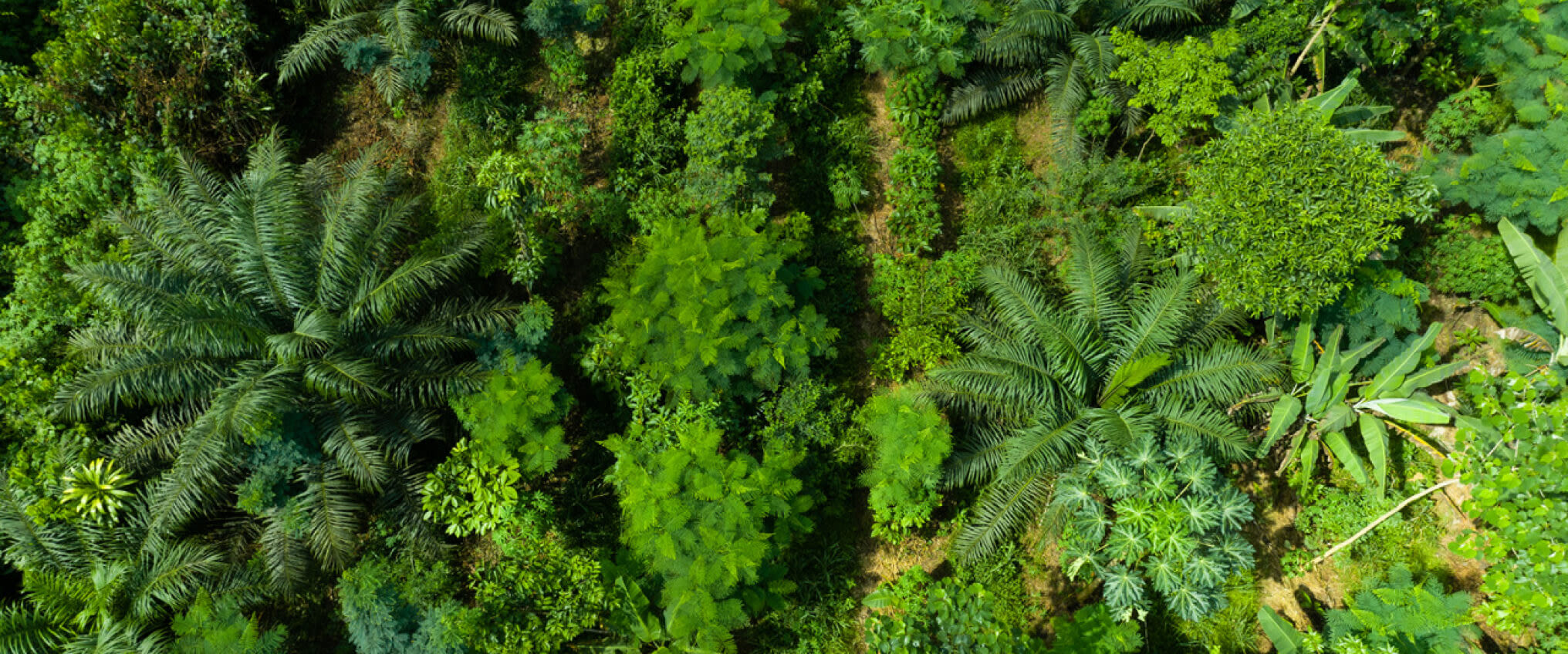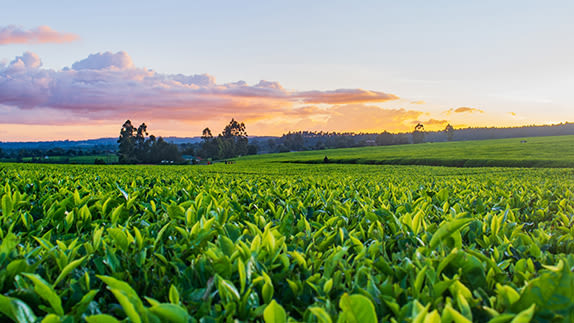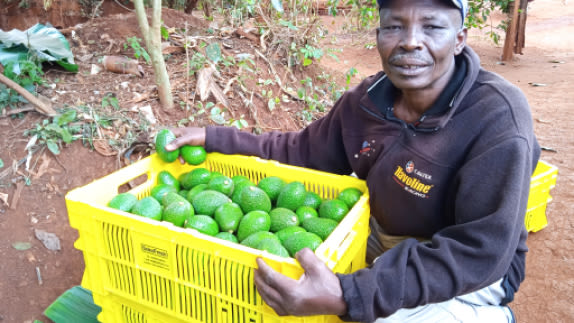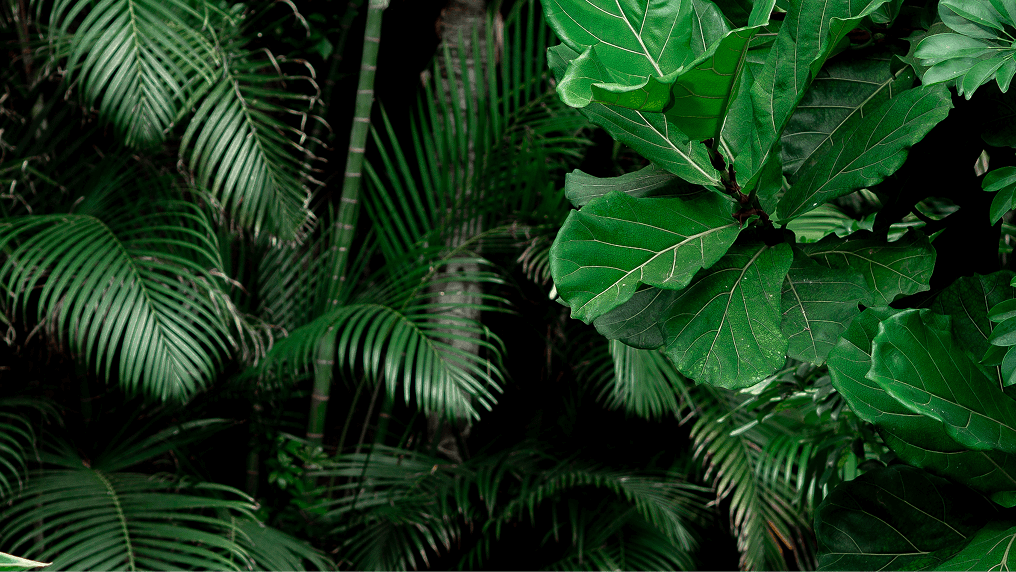
name:
Serendipalm/Dr. Bronner’s
founded:
2007 (project founded); 2009 (company incorporated)
origin:
Ghana
Dr. Bronner's is an American personal care company that relies on a high volume of agricultural raw ingredients to manufacture its soaps, toothpastes, and lotions. Many of these ingredients, in particular palm oil, are sourced from tropical areas, with global supply chains that are commonly associated with destructive environmental practices and the exploitation of local communities. After many years of unsuccessfully searching for an ethical and nature-positive source of palm oil, Dr. Bronner's decided to build one on its own.
The Serendipalm project began in 2007 in the town of Asuom in Ghana, without any clear-cutting or deforestation. Before it was set up there were only two basic types of palm oil production in Ghana: large plantations that relied on pesticides with resultant impacts on the environment and risks to farmer health; or smallholder farms that could not afford pesticides and therefore produced low yields and low incomes.
To provide a regenerative alternative, Serendipalm has contracted a network of over seven hundred smallholder farmers with landholdings averaging 5 - 7 acres in size. Serendipalm farmer members are trained in regenerative cultivation methods, such as the application of green manures complemented by techniques such as intercropping, pruning, weeding, and harvesting at the proper time. Serendipalm has also helped develop and disseminate locally adapted, high-yielding palm tree seedlings, which are more resistant to pests and better suited to local growing conditions.
The oil is processed in a local mill in Asuom using a combination of traditional manual processes and modern equipment at critical steps (separation of oil and water) to achieve high process yields. The mill employs over 200 people – mostly unskilled and semiskilled locals - at well above average living wage. A diverse group of motivated professionals manages the increasingly complex operations, with support from Dr. Bronner’s Special Operations team.
Together, Serendipalm’s network of hundreds of farmers and the town mill constitute a fully transparent supply chain that is integrated and owned by the company. The example of Dr. Bronner's, as well as similar companies such as Natura from Brazil, show how large companies can create regenerative and fair supply chains, giving customers the confidence that their everyday products are having a positive impact on the environments and communities which helped create them.
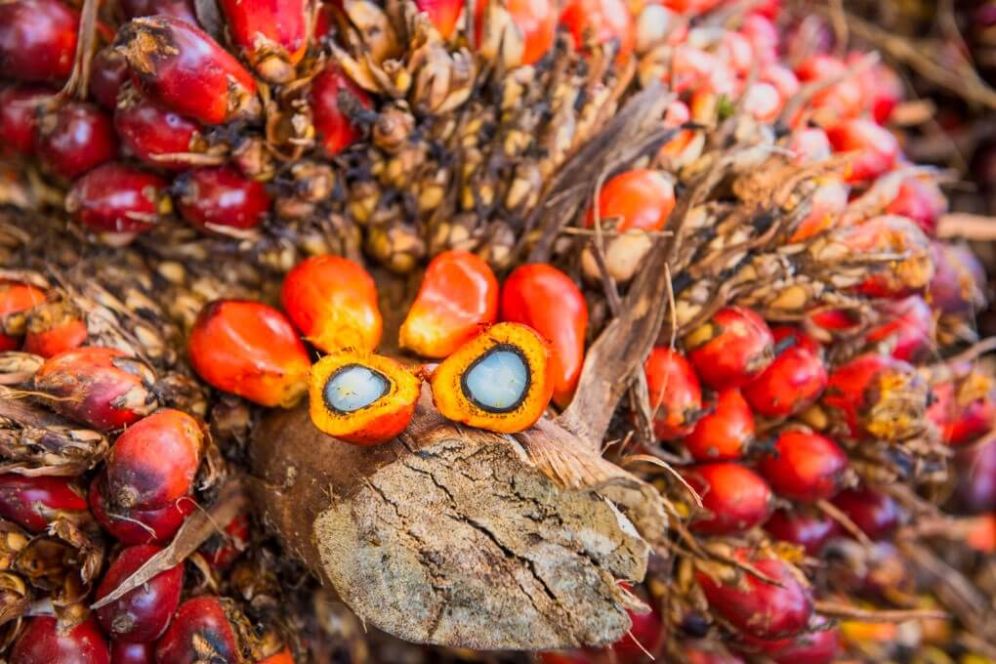
Palm fruit cut in half - on the outside, the mesocarp used for producing palm oil; in the middle, the palm kernel, used to produce palm kernel oil (Photo from Serendipalm)
Why is it circular
From the outset, Serendipalm worked with existing smallholder plots of oil palms and supported the cultivation of organic palm fruit trees that avoided the clearing of additional forest and restored degraded existing palm fields through regenerative farming practices. This approach protects natural carbon stocks and helps conserve habitats for local wildlife that are often sacrificed in order to achieve high yields. Only the outer palm fruit is used by Serendipalm, so the palm kernels are collected and sold to a Togo-based fair-trade soap production company based in a neighbouring town. Crop by-products are mulched into fertiliser and cycled back to the farms returning nutrients to the soil.
By 2016 Serendipalm had also converted the cocoa plots of many of its oil palm farmers to organic practices. There is strong demand for organic and fair trade cocoa beans from West Africa, yet many Ghanian farmers still used synthetic pesticides on cocoa.
Concurrently, Serendipalm began encouraging its farmers to adopt mixed agroforestry methods. By 2022, with support of a German development agency, many new fields are planted following the concept of dynamic agroforestry which integrates palm and cocoa production with the cultivation of secondary crops such as bananas, papayas, cassava, turmeric, and ginger. Many of these additional crops can be harvested in the first year, long before the cocoa and palm fruit, thus providing earlier revenue and increased food security.
Agroforestry, which is the integration of crop production within forest systems, combines different tree heights, leaf sizes and canopy densities in one growing area, maximising the collection of sunlight and optimising photosynthesis. The diversity of trees means that the overall system is less prone to pests. Natural leaf fall and active pruning provides a virtuous cycling of nutrients which feeds the soil biology, leading to highly fertile growing conditions, resulting in higher crop yields, higher quality products and increased food security.
Such systems also produce more biomass and sequester more atmospheric CO2 per hectare per year thus helping mitigate the climate crisis. With regenerative organic programs in place for all its farmers Serendipalm became, in 2020, the worldwide first Regenerative Organic Certified (ROC) palm oil project. The ROC certification now facilitates sales to companies wanting to include ROC-certified ingredients in their supply chain.
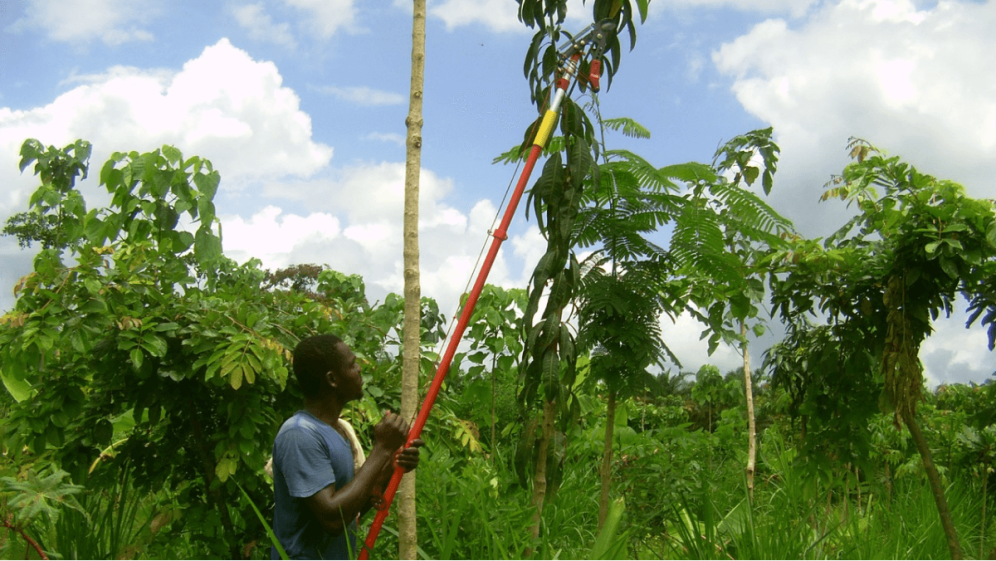
Pruning is a key activity in an agroforestry system (Photo from Gero Leson)
….and fair too
Serendipalm exemplifies a core principle of the circular economycircular economyA systems solution framework that tackles global challenges like climate change, biodiversity loss, waste, and pollution. It is based on three principles, driven by design: eliminate waste and pollution, circulate products and materials (at their highest value), and regenerate nature.; to regenerate natural systems and protect natural stocks of carbon. However, Dr. Bronner's motivation for creating Serendipalm was not just to ensure a nature-positive supply chain for its palm oil, but also as a mechanism to protect farmers and communities from harmful chemicals, degraded landscapes, exploitative middle-men and generate other social benefits.
The majority of staff employed by Serendipalm are women, many of whom are widows or single mothers, a particularly vulnerable demographic in a traditional society. Wages are 25% higher than the local average and the company also provides free healthcare. Workers are given paid time off and sick leave, as well as other benefits such as healthcare, continuing education and annual bonuses – all common in wealthier economies, but uncommon in Ghana, notably for unskilled workers. Serendipalm’s fair trade fund and additional grants have also funded a range of community development projects, including a maternity ward for the local healthcare facility, so that all mothers in the town of Asuom and wider region have access to high quality prenatal, delivery, and postpartum care.
Perhaps one of the strongest community benefits of regenerative palm oil production is that the model supports farmers to maintainmaintainKeep a product in its existing state of quality, functionally and/or cosmetically, to guard against failure or decline. It is a practice that retains the highest value of a product by extending its use period. ownership of land using techniques to improve soil health over time. By increasing agricultural vitality, climate resilience and food security, the regenerative farmers of Asuom improve the overall economy of the region and are justifiably proud of their farming legacy.
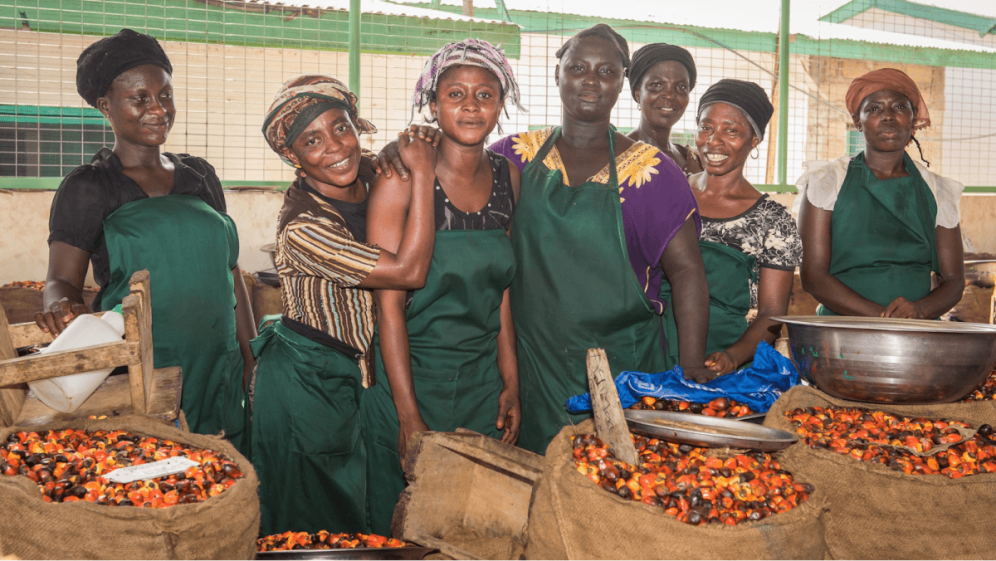
Photo by Rapunzel
Benefits
The proper use of natural inputs allows farmers to maintain their organic certification, which ensures a 10% premium over the local market price for palm fruits.
Further development of farms into more diversified agroforestry systems, result in higher crop yields and greater ecological benefits to the soil and biodiversity. Agroforestry is a continuous growing system that increases climate change resilience by providing shade and improving hydrology, as well as increasing food security.
By pioneering regenerative farming practices in Ghana, Serendipalm and Dr. Bronner's are playing a role in combating climate change and positively impacting the lives of local communities.
Background
Palm oil is an edible vegetable oil derived from the fruit of oil palms. It is an incredibly efficient crop yielding more oil per land area than any other equivalent grain or vegetable. Palm oil is a very versatile ingredient that is used in food manufacturing, beauty products, and for biofuel. The combination of high yield and versatility has meant that global palm oil production has increased by a factor of 35 since the 1970s. Most of this production has been derived from palm trees grown on land that was previously pristine tropical forests. In Borneo alone, 350 000 hectares of forest have been destroyed every year since 2005 for the cultivation of palm oil.
The dominant method of palm oil production is one of the most linear processes in the modern economy, with the majority cultivated through large monocultures planted on old growth forests that have been chopped or burned down. This practice destroys wildlife ecosystems, erodes soil, pollutes water bodies, and releases significant stocks of carbon into the atmosphere. Furthermore, farmers and communities in palm growing areas are often underpaid, exploited, or even abused as a corollary of palm oil production. Despite the well-documented environmental and social consequences, countless companies and product supply chains rely on palm oil as a key ingredient, and millions of livelihoods are dependent on palm oil growing and processing.
To decarbonise supply chains, prevent the destruction of wildlife habitats, and improve the lives of local communities, companies and countries that use palm oil play an important role.
For example by:
Reducing or eliminating their use of palm oil particularly as a feedstock in products such as ‘sustainable biodiesel’
Redesigning food product portfolios with lower impact ingredients
By using exclusively palm oil produced according to more or less comprehensive sustainability standards
Or, following Dr. Bronner’s example, through developing vertically-integrated supply chains which are regenerative and socially equitable.
Palm oil is just one of numerous global supply chains that feed into the product portfolios of international companies. In parallel with the Serendipalm, Dr. Bronner's has also established similar regenerative supply chains for coconut oil in Sri Lanka and Samoa, as well as for mint oil in India and Kenya.
Further info
Animated video showing Serendipalm’s basic concept
Dr. Bronner's along with Patagonia and the Rodale institute is one of the founding partners of the Regenerative Organic certification.
Tamalu Farm - agroforestry in Kenya
Sign up to our newsletter
Sign up for our monthly newsletter and make sure to tick the “Supply chain” box below to receive the latest updates on circular supply chains.
